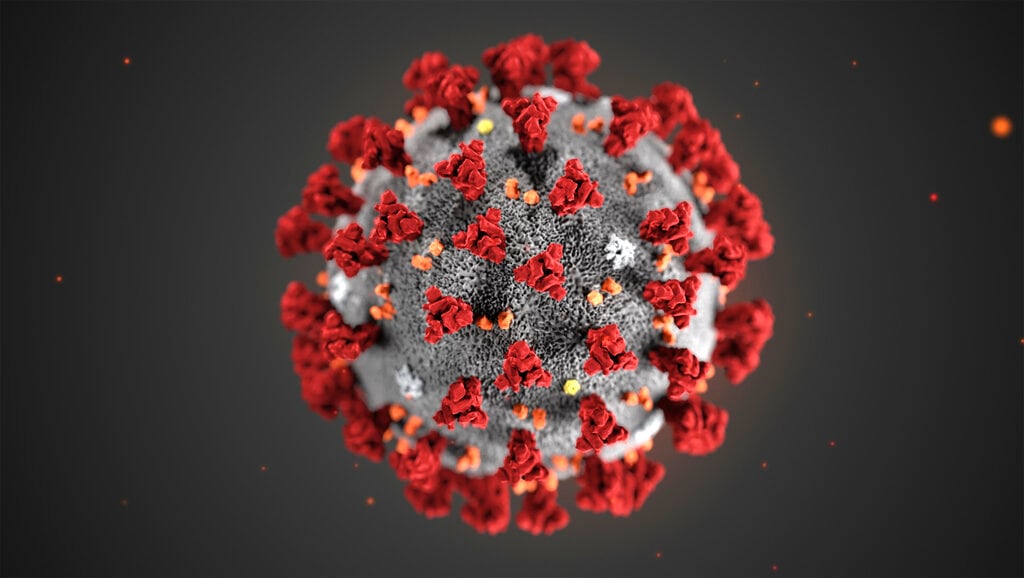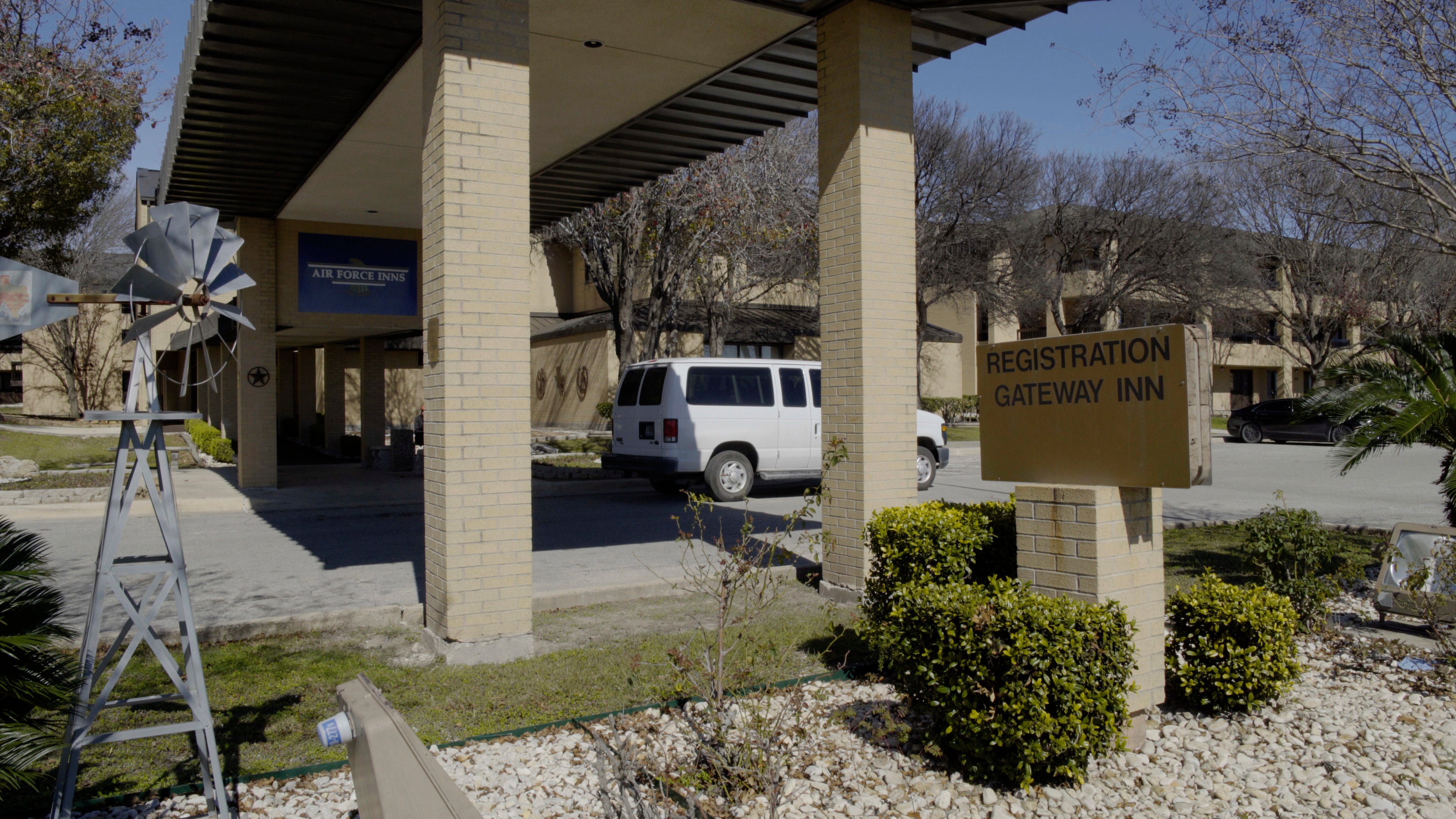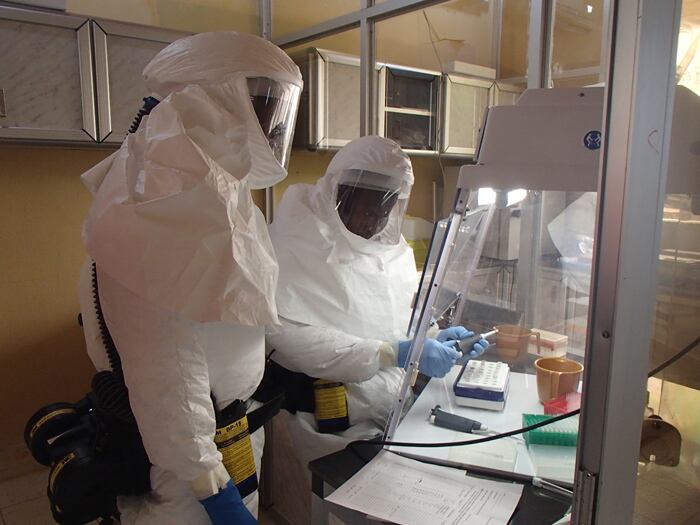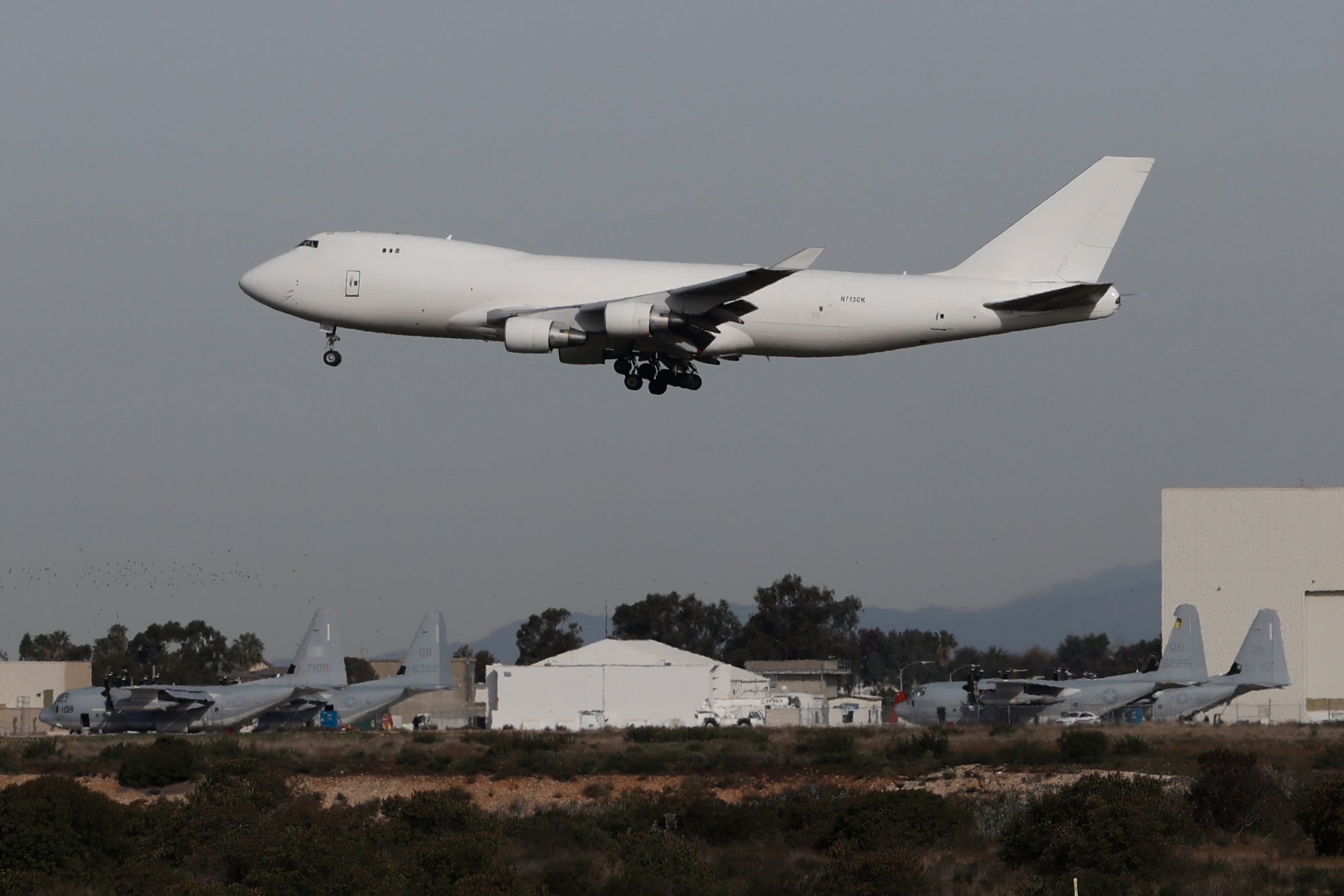The Pentagon has identified military installations that can provide housing for quarantined passengers traveling to the U.S. through 11 major airports screening for the coronavirus from China.
Defense Secretary Mark Esper is expected to OK a Department of Health and Human Services request to supply additional housing and support for quarantined individuals, according to a Department of Defense release issued Thursday.
The list includes Joint Base Pearl Harbor-Hickam, Hawaii, near Honolulu International Airport; Great Lakes Training Center Navy Base, near Chicago’s O’Hare International Airport in Illinois; Naval Air Station Joint Reserve Base, Texas, near Dallas Fort Worth International Airport; Dobbins Air Reserve Base, near Hartsfield-Jackson Atlanta International Airport; Fort Hamilton, New York, for John F. Kennedy International Airport; Naval Base Kitsap, close to Seattle-Tacoma International Airport; Joint Base Anacostia for passengers traveling through Dulles International Airport in Virginia; Joint Base McGuire-Dix-Lakehurst, for Newark Liberty International Airport; and Fort Custer Training Center near Detroit Metro.
The list is in addition to locations already providing housing to quarantined Americans who have fled Wuhan and Hubei province in China where the virus originated. Those bases include March Air Reserve Base, Travis Air Force Base and Marine Corps Air Station Miramar in California; Lackland Air Force Base in Texas and Eppley Airfield in Omaha, Nebraska.
RELATED

Another potential site named earlier by Esper is the 168th Regiment, Regional Training Institute at Fort Carson, Colorado.
The new sites would only be used if HHS facilities designated as quarantine zones become filled. Pentagon officials called them tertiary locations that would have the ability to house up to 20 people.
The locations also will provide office support for HHS personnel, including Centers for Disease Control and Prevention officials, through Feb. 22.
According to a release, DoD will not be in direct contact with any evacuees and will “minimize contact with personnel supporting the evacuees.”
As with current and ongoing quarantines at military installations across the U.S., anyone identified with a fever or symptoms will be transported to a local civilian medical facility for testing and observation.

As of Thursday, there were 12 confirmed cases of the new coronavirus in the U.S.
Four patients who arrived at Marine Corps Air Station Miramar on an evacuation flight were transported to hospitals in San Diego for symptoms that included a fever or a cough. A child hospitalized with a fever earlier this week after arriving at March Air Reserve Base has tested negative for the illness.
More than 28,000 people have been infected with virus and 565 have died, mainly in Hubei province.
The Defense Department issued guidance Jan. 31 to service members on how to reduce the risk of getting the coronavirus. Individual U.S. commands, especially those located in Asia, have issued travel restrictions to China, recalled personnel from visits to the country and placed troops in quarantine.
The Department of Veterans Affairs released a statement Thursday saying it was “closely monitoring coronavirus in China” and the Veterans Health Administration Emergency Management Coordination Team is working with CDC officials to coordinate a response should the illness become more widespread.
On Thursday, Sen. Jon Tester, D-Mont., and six members of the Senate Veterans Affairs Committee wrote VA to encourage the department to notify the Senate early if it needs more funding or administrative assistance if a massive outbreak were to occur.
“Given the emergent nature of the virus we want to ensure that veterans and staff can count on VA health care facilities to be fully prepared for prevention, diagnosis and response efforts,” they wrote. “Given that VA is the largest health care system in the U.S., we want to be sure that the department is working together with CDC and other partners to monitor the outbreak and keep patients and staff safe.”
RELATED

The letter was signed by Tester, and Sens. Patty Murray, D-Wash., Bernie Sanders, I-Vt., Sherrod Brown, D-Ohio, Richard Blumenthal, D-Conn., Mazie Hirono, D-Hawaii, and Kyrsten Sinema, D-Ariz.
While lawmakers have generally expressed support for how the HHS has been handling efforts to contain the spread of the virus, at least one representative said he was blindsided by the fact that a military facility in his district was included on the list of potential housing areas for evacuees.
Rep. Joaquin Castro, D-Texas, said he learned that Lackland Air Force Base was among the listed bases from the media.
“Like other offices, my office and I first discovered that Lackland Air Force Base would house and quarantine evacuees from Wuhan, China through the press, not directly from the administration,” he said. “Failure to provide advance notice went against precedent, due process, and showed a complete disregard for the people of San Antonio.”
He added, however, that having now been briefed, he is “confident that the systems we have in place are entirely adequate.”
Patricia Kime is a senior writer covering military and veterans health care, medicine and personnel issues.





